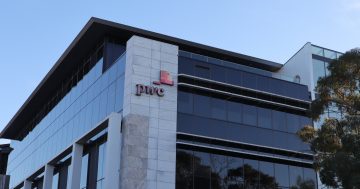Michelle Gibbings* says integrity is a valuable but fragile quality that can easily be damaged in a workplace lacking ethical principles.
 We all have values that underpin how we think and what we will and won’t do.
We all have values that underpin how we think and what we will and won’t do.
These values can sometimes be challenged in the workplace.
A number of years ago I was working with a client who faced constant pressure at work.
The leadership team was part of a toxic culture and it was commonplace for people to be publicly humiliated and yelled at in meetings by the chief executive.
My client’s behaviour and style was at the opposite end of the spectrum.
They struggled to fit in and yet, as the role was a promotion, they wanted to do well and to succeed.
The challenge was not only how to survive the environment, but how they could maintain their authentic self and integrity.
This can be hard because behaviour is contagious.
When you spend too long in a negative and nasty environment you may well find that the behaviour of others starts to rub off on you.
Research by the University of Manchester’s Business School looked at the impact on employees when they worked with a boss who displayed psychopathic or narcissistic traits.
They found that employees generally felt more depressed, experienced less job satisfaction and were more likely to engage in undesirable behaviour at work.
It’s important to know what you stand for and, therefore, to know the line you won’t cross.
Once you’ve crossed that line it is harder to turn back, because your integrity is already eroding.
A person with integrity lives their life according to moral and ethical principles.
At a practical level, your integrity is about what you say and do every day – the decisions you make and how you treat people.
People bristle when they hear their integrity has been called into question.
For most people, their integrity is valued and not something they would want to lose.
However, your integrity can become tarnished and eroded over time if you’re not careful.
An organisational culture that tolerates or encourages behaviour that is bordering on dodgy to downright unethical can see people behave in ways that are out of character.
Behaviour that they wouldn’t consider appropriate or ethical is adopted as they become ‘culturalised’ to the accepted way of behaving in that environment.
Maintaining integrity encompasses two core attributes — having courage, and being conscious of the work environment and its impact on you.
Both attributes have a range.
For courage, you can think about it in terms of ‘absent’ at one end and ‘present’ at the other end.
Your consciousness is either ‘active’ or ‘passive’.
How each attribute is activated will have consequences – positive or negative – for your integrity.
History is littered with examples of people who were blind to the environment they worked in and the dangers it posed, and who didn’t have the courage to protect their integrity.
In the end, they become captured by the situation and their integrity was sold.
The prime example was Enron.
Thousands of words have been written about the culture at Enron with their profit-at-all-costs mentality and the consequent impact it had on the behaviour of people who worked there.
At the other end of the spectrum, there are people who are conscious of their environment and have the courage to remain centred and true to their principles.
I’ve worked with leaders like this, people who operate with integrity and good intent.
This creates space and support for the team to be the best it can be.
Of course, life is sometimes not so clear cut and there are always shades of grey, creating confusion and sometimes conflicted thoughts as to the best approach to take.
When that happens ask yourself the questions that Benjamin Franklin asked himself at the beginning and the end of every day.
In the morning it was: “What good shall I do today?”
In the evening: “What good have I done today?”
What would your answers be?
* Michelle Gibbings is the Melbourne-based founder of Change Meridian who works with leaders and teams to help them get fit for the future of work. She can be contacted at [email protected]
This article first appeared at www.changemeridian.com.au











